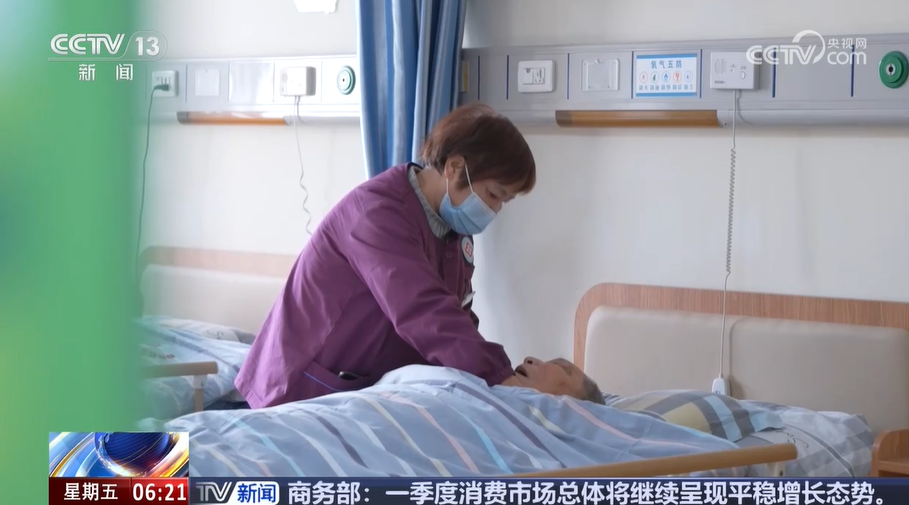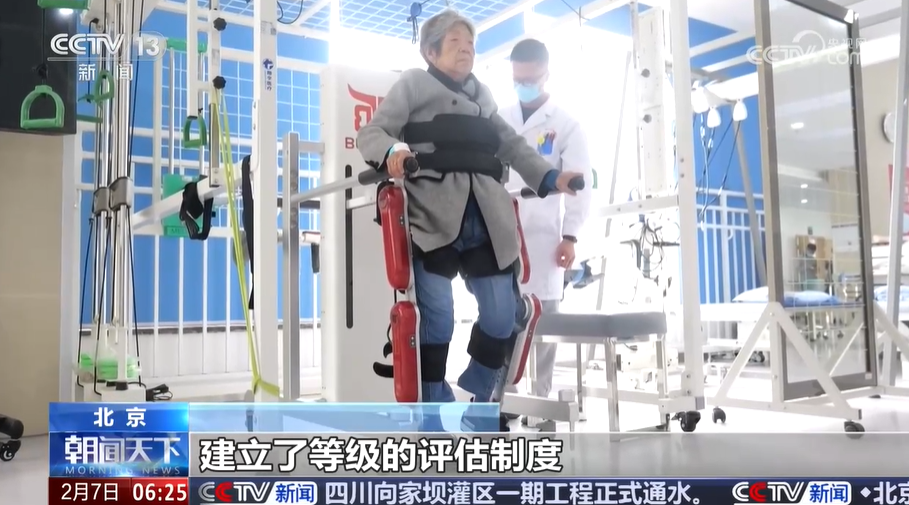CCTV News: According to the National Health Insurance Administration, eight years since the pilot project of long-term care insurance was launched in 2016, the pilot work in 49 cities across the country has been steadily progressing, and the phase goals have been basically achieved. As of the end of 2024, more than 180 million people across the country participated in insurance, with a total of more than 2.6 million people enjoying benefits, and the fund expenditure exceeded 80 billion yuan, which not only improved the quality of life of disabled people, but also reduced the burden on the family.
Long-term care insurance is called the sixth insurance after the five major insurance types of pension, medical care, work-related injuries, unemployment and maternity. Unlike basic medical insurance, long-term care insurance is mainly used to protect the expenses paid for basic living care and related medical care.
This year, Huzhou, Zhejiang will fully implement the long-term care insurance system, with the financing standard of no more than 90 yuan per person per year, of which 30 yuan of personal payment for urban and rural residents' medical insurance will be collected simultaneously with the basic medical insurance costs; 45 yuan of personal payment for employees' medical insurance will be withheld and paid through the medical insurance personal account. At present, the Huzhou Mayor’s protection insurance targets are severely disabled people. For home care groups, nursing institutions provide home services, the medical insurance department pays 1,200 yuan to nursing institutions every month; for people living in nursing institutions, the medical insurance department pays the institution at a standard of 50 yuan per person per day.

In recent years, pilot cities have continuously improved the fund raising mechanism and the salary guarantee mechanism to ensure that disabled people can fulfill their benefits and enjoy services in a timely manner. In Chengdu, the first pilot cities in the country, long-term care insurance has achieved national coverage, and the coverage has been expanded from severely disabled people to moderately disabled people.
The expansion of long-term protection insurance is imminent. What other shortcomings need to be filled?
As the aging of the population intensifies, the expansion of long-term care insurance coverage has been put on the agenda. At present, the National Health Insurance Administration is working with relevant departments to accelerate the establishment of a long-term care insurance system with the goal of establishing independent insurance types, covering the whole people, standardizing and unified policies, and in line with my country's national conditions. Ensure that when the system is fully covered and implemented, disabled people can fulfill their treatment and enjoy services in a timely manner. The expansion of long-term protection insurance is imminent. What difficulties do we still face to break through?
Survey shows that there are about 45 million disabled and dementia-related elderly people in my country, while there are only 500,000 certified elderly care workers. According to the national standard ratio of elderly care workers to the elderly, the 1:4 ratio, the potential demand for nursing talents will reach more than 10 million.
Liu Yuanli, professor at Peking Union Medical College, introduced that according to a survey, 87% of the elderly are willing to receive care services at home, which also means that we need a large number of standardized training nurses, and this team must continue to strengthen.
Judging from the eight-year pilot situation, one of the pain points facing long-term care insurance is the sustainability of the funding source. At present, more than 90% of the financing in pilot areas comes from the transfer of medical insurance funds, and an independent financing system has not yet been formed. "Where does the money come from" is a problem faced by many regions.
Liu Yuanli, a professor at Peking Union Medical College, pointed out that from a global perspective, the payment of premiums in the long-term care insurance system is necessary. In addition, it is necessary for the fiscal to provide certain expenditures. A household survey of more than 5,000 people in six cities across the country showed that more than 70% expressed their willingness to pay a fee ranging from 50 to 100 yuan per year.

Experts suggest that an objective and scientific third-party disability rating assessment system should be accelerated to accurately determine which level of long-term care insurance benefits can be enjoyed.
Liu Yuanli, a professor at Peking Union Medical College, suggested that after establishing a hierarchical assessment system, the more severe the degree of disability, the higher the degree of protection. In addition, the assessment of family payability is also considered. With the same level of disability, the worse the family conditions, the higher the degree of security.





